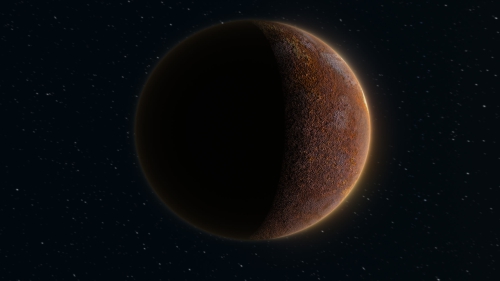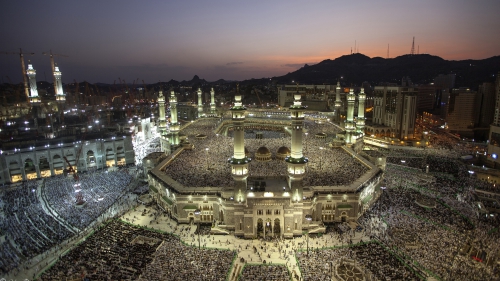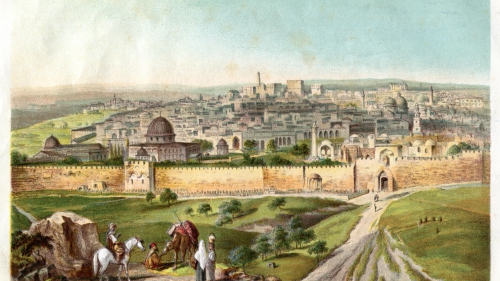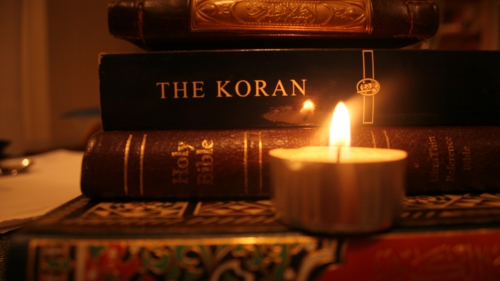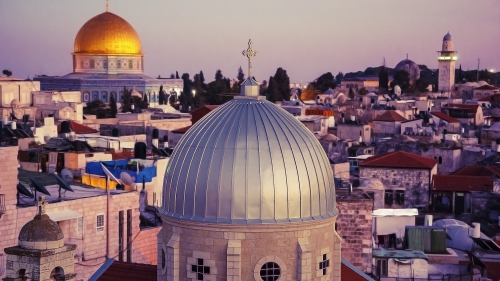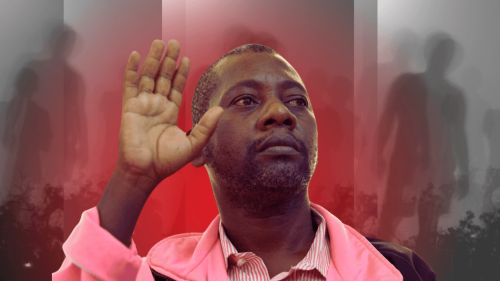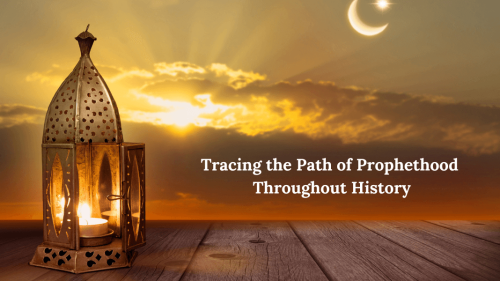The Lost Cities of Genius

The following article excerpted from the work of Michael Hamilton Morgan, "Lost History- The Enduring Legacy of Muslim Scientists, Thinkers, and Artists"
Caliph (Leader) Abu Jafar Abdullah al-Mamun of the Abbasid House, born in the Muslim year 164 A.H., (A.D. 786) and dead 47 years later, was the leader of the Islamic empire stretching from North Africa to Arabia and Persia, Afghanistan and North India. He lived in a city on the Tigris River which flows between the Euphrates and Mesopotamia. Under his leadership Baghdad became the center of learning for the entire world during what was called the Heart of the Arab Golden Age. Under his caliphate, Christians and foreign translators rendered the Greek, Roman, Byzantine, Persian, and Hindu classics into Arabic. It is also where modern mathematics and many other sciences came to fruition including literature.
BAGHDAD , A. D. 813-Under the stars of Baghdad, Caliph Abu Jafar Abdullah al-Mamun tosses and turns most of the night and then fitfully dreams in those last short moments before dawn. He dreams that a figure of light and gold, dressed in the tunic of Greece and smelling of olive oil, comes and stands before him.
'Who are you?' the frightened caliph ask. I am Aristotle, 'the spirit says.
'And why have you come to me?' Asks the caliph, his heart pounding to be in the presence of such a great thinker, some he has read of since childhood and been told about by the growing circle of his foreign advisers and viziers and wise men, men from Persia and Byzantium and Syria.
'I have come to answer your question,' says Aristotle.
'And what is my question?' the caliph asks, knowing in his heart but wanting to hear the spirit say it.
'Your question is, What is better for the affairs of man and the affairs of society, reason or revelation? What is the righteous way, the best way between these two?
And the caliph nods, knowing this is the question that has been troubling him for years, growing larger day by day until it seems to be the paramount question of human existence in this new world. 'And what is your answer to this riddle? Asks the caliph. 'Which is more righteous?'
And Aristotle smiles and places his golden hand on the forearm of the caliph. 'My son, 'he says, 'they are not in opposition. But to find true revelation, man must first choose reason, because reason is the doorway to truth. In this way, God shows himself to man through ideas.'
And the caliph is both struck speechless and filled with euphoria to hear the wisdom and truth of this. This is what he has believed in his heart of hearts, but has been forced by those who are opposed to reason to consider their alternative view.
'Are you certain?' the caliph asks. 'For there are many claiming to be holy and righteous who say true revelation comes not from the corrupted human mind but from the pure divine heart.'
Aristotle smiles and shakes his head.
'Such men have always been with us,' the philosopher says. 'Be gentle with them, try to reassure them. Try to not have them fear their minds and ideas, which are sacred gifts of God and reflections of his divine mind. Turn all your resources to translating the great works of thought and knowledge into Arabic, whether they be written in Greek or Latin or Persian or Sanskrit or any other tongue. Knowledge has no borders, wisdom has no race or nationality. To block out ideas is to block out the kingdom of God.'
The caliph is nodding; he believes this to be true. And before he can say good-bye, Aristotle is disappearing into the glow of dawn, leaving behind nothing but the immediacy of the memory.
Michael Hamilton Morgan is author of The Twilight War, and co-author with undersea explorer Robert Ballard of Collision with History: The Search for Jon F. Kennedy's PT-109 and Graveyards of the Pacific. A former diplomat, he created and now heads New Foundations for Peace, which promotes cross-cultural understanding and leadership among youth. He has appeared on ABC and CBS and as a Washington journalist has covered foreign policy issues. From 1990 to 200 he directed and advised the International Pegasus Prize for Literature.
Related Suggestions
I had heard of Caliph Mamun's vision. The Muslim world is in need of such leaders. Knowledge has no boundaries. There are those who say that science, art and literature are not worth pursuing as they distract a person from Islam. In my opinion this is not correct. As a person acquires knowledge he developes a clearer understanding of the world around him. A person in this position is capable of being a better Muslim. We now know that the Quran has mention of scientific phenomena. The fact that Allah mentioned these in the Quran shows that He intended man to seek that knowledge.






